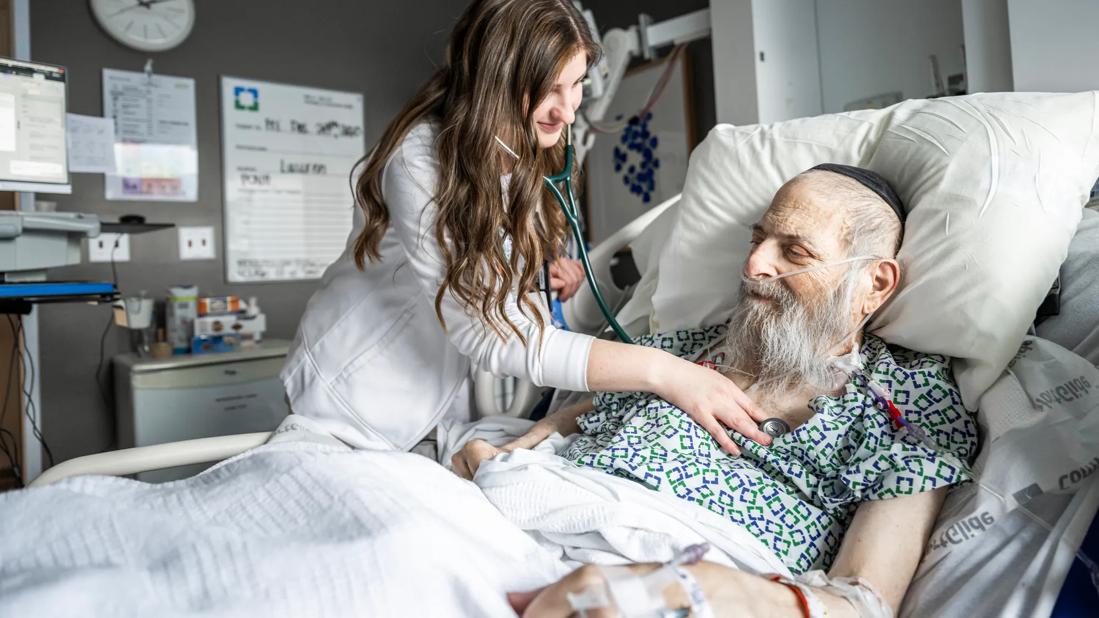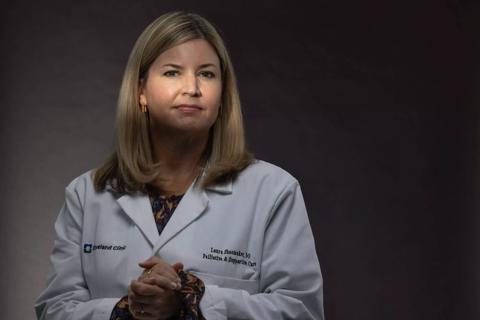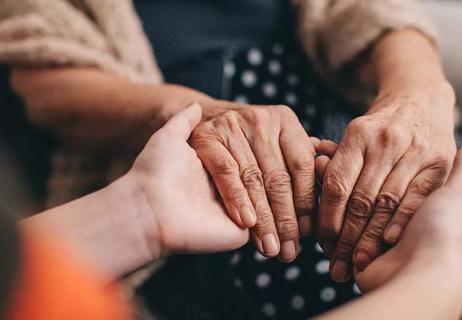Program focuses on nurturing ethics leaders in daily practice

Nurses are routinely called upon to deal with ethical challenges in which they must decide between competing values. Some clinical situations raise ethical questions that challenge the nurse’s professional principles – or even their organization’s clinical protocols. A new Cleveland Clinic fellowship aims to help nurses navigate morally complex, emotionally charged situations by providing them with education and practical experience in nursing ethics and bioethics.
Advertisement
Cleveland Clinic is a non-profit academic medical center. Advertising on our site helps support our mission. We do not endorse non-Cleveland Clinic products or services. Policy
Established in 2021, the Nursing Ethics Faculty Fellowship offers nurses a unique opportunity to gain real-world training in the management of ethical challenges in healthcare. The program is a collaborative effort between the Stanley Shalom Zielony Institute for Nursing Excellence and the Center for Bioethics.
“Ethics is at the heart of everything we do as nurses,” explains Georgina Morley, PhD, MSc, RN, who directs the program. “Even something as seemingly simple as deciding which patient’s call light to respond to first can have ethical repercussions. This fellowship helps weave the study of ethics, which is often rushed or absent in nursing training, into the day-to-day development of nursing professionals.”
When caring for patients, nurses can face ethical dilemmas for a wide variety of reasons, explains Cristie Cole Horsbugh, JD, associate director of the fellowship program. Difficult questions frequently arise regarding the protection of patients’ rights, informed consent for treatment, advance care planning, surrogate decision-making, end-of-life care, inadequate staffing and more.
“Although it’s virtually impossible to avoid moral dilemmas when you’re accountable for the wellbeing of patients, nurses can equip themselves with the knowledge necessary to address these issues with confidence,” she says. “The fellowship provides a framework for supporting the emotional, physical and psychological health of each patient while complying with the responsibilities and principles that govern nursing practice.”
Advertisement
One of the key goals of the fellowship is to help nurses acquire the skills needed to create a more ethical climate, says Horsburgh.
“Faculty fellows are able to lead ethics rounds with nurses and other caregivers who have been confronted with an ethics question and may be experiencing moral distress,” she says. “These opportunities allow nurses to pinpoint potential problems and intervene before they become full-blown ethical conflicts. Fellows are also encouraged to work with unit leadership to address systems-oriented issues and help mitigate future experiences of moral distress.”
To be eligible for the fellowship, an applicant must be a registered nurse employed by Cleveland Clinic and hold a master’s or terminal degree (DNP, PhD, JD). A strong interest in bioethics scholarship and practice and good organizational, time management and communication skills are required, as is the ability to work both independently and collaboratively.
Each faculty fellow is expected to design and conduct a nursing ethics project during their fellowship year that examines an area of nursing ethics and enhances the delivery of care in clinical practice, explains Dr. Morley.
Ethical challenges faced by nurses during COVID-19 were the subject of the project completed by the program’s inaugural fellow, Dianna Copley, DNP, APRN-CNS, who worked in collaboration with Dr. Morley and two other nursing colleagues. Results of that research and reflections on the faculty fellowship and Nursing Ethics Program were presented at the Nursing Institute’s grand rounds and annual conference of the American Society for Bioethics and Humanities in October in Portland, Oregon.
Advertisement
Dr. Copley explains, “The fellowship has improved my confidence in recognizing, interpreting and intervening when ethical situations arise. In my role as a clinical nurse specialist, the program has provided me with the tools to mentor other nurses at the unit and system level.”
In addition to completing a research project, fellows are required to:
The fellowship demands a weekly time commitment of four hours for educational sessions, mentorship meetings, and nursing ethics rounds/huddles. Fellows receive protected time to complete the program.
“My hope is to create and sustain a network of nurses who have expertise in exploring the ethical dilemmas of patient care through the lens of nursing practice,” explains Dr. Morley. “Although managing competing personal and professional values can be a career-long challenge, we believe our nursing fellows will emerge from this program with the sound judgment needed to address these conflicts with logic and sensitivity.”
Advertisement
Advertisement

In rehabilitation medicine, the answer might require nuance

Mental health colleagues can provide much-needed perspective

Palliative care specialists know hard conversations can also be valuable ones

Variables affect nuances of the conversation

Authors discuss ethical challenges associated with sponsored genetic testing

Medical, ethical and legal considerations

An end-of-life dilemma in the intensive care unit

What to do when a patient refuses recommended emergency medical care